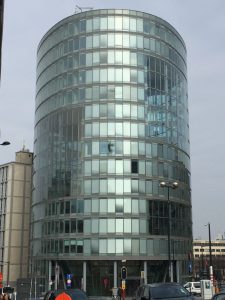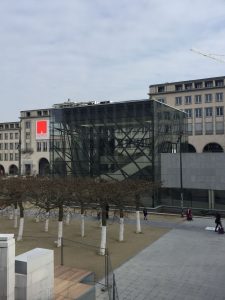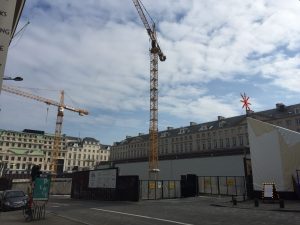Windows are one of the critical components required in constructing sustainable building designs. As most of the energy flows in and out of a building through windows, technological innovation, intelligent designs and isolation have become major criteria for window production. Windows nowadays have provided comforts in terms of heating, cooling and lighting for better indoor environments. Moreover, sustainability has become a major topic in the society. Therefore, window manufacturers have spent their research and development to meet customers’ expectations. In addition to the environmental concerns, there’s an increasing number of regulations. For example, the European Union set common standards for all member states regulations.
Brussels, as the capital of the European Union, is a cluster for international institutions such as the European Commission, the European Parliament or UNICEF. These institutions are aiming to have a front-runner position in terms of modernization and sustainability. The architectural challenges in Brussels are to include modern design within the existing the classical environments. This creates a unique city-center and poses a market potential for window manufactures. There are a lot of construction sites in Brussels giving a better opportunity to enter the market specially these large buildings such as the European Parliament and the European Commission. The biggest European players in this industry sector are Jeld-Wen, Pella and Andersen.
In terms of complying with the Brussels region, the current standard practice is that all window must be at least. Ordinary double glazing (Low E double glazing in Brussels Region) with window U-Value of 2.5. Comparing to the European market average, Brussels Region has set a higher standard than other countries.
As a swiss window manufacturer thinking contextual intelligence is crucial when entering a market such as Brussel. Reasons for that, are the high expectations of the architectures and its clients as well as the special purposes of buildings in the city. Considering the need of public announcement for public construction, the bar is raised to be awarded the contract.
Having a growing city with many old buildings that do not meet the minimum requirements in regard to ecological standards, there is great potential for a company that meets both, the capability to produce high quality windows, as well as being able to keep up with the expectations to be innovative and to deliver to clients in time. This has to be kept in mind, considering the high amount of governmental institutions and NGOs being present in Brussels. Hence, a good place to set up a sales office would be in the middle parliamentary area.
As a Swiss provider of high-quality windows, not being part of the European Union, the need to be flexible and adapt to given circumstances in the long-term is pivotal. Moreover, the decision-making process of such clients may take several months, or even years.
Concluding, the market itself is very promising for a manufacturer of large high-quality windows, considering the high purchasing power and demand. Nevertheless, a market entry is challenging since Swiss companies face the political hurdles of not being an enterprise from a member-state of the European Union. To solve this issue, the network model by Johanson and Mattsson should be implemented in the internationalization strategy.



